According to Egyptian mythology, it was King Osiris himself who planted the first vine in the city of Thyrsa. Since then, the grape has been linked to the origin of wine in the world. Archaeological evidence traces the use of grapes for wine production back to around 6000 BC. For centuries, that sweet and fresh liquid, grape juice, was destined mainly for winemaking. Today, however, those same grapes are part of a broader value chain. Concentrated grape juice is no longer just a raw material for wineries; it has become a valuable ingredient that offers opportunities for innovation in the global food, beverage, nutraceutical, cosmetic, and pharmaceutical industries.
What explains this evolution?
Mainly two converging factors: the market’s demand for clean label and highly functional ingredients, and the technological advances that make it possible to concentrate all the essence and natural qualities of the grape in the juice. At Julián Soler, we have been agents of this transformation.
To understand this journey from the vineyard to innovation, today we explain the key role that concentrated grape juice plays in the formulation of new, on-trend foods and beverages.
- Why concentrated grape juice meets current trends: clean label and functional foods
- Applications of concentrated grape juice in different industries
- Concentrated grape juice in new industrial developments
- Julián Soler grape juice: a shared evolution
Why concentrated grape juice meets current trends: clean label and functional foods
The global market is moving toward increasingly conscious, transparent, and healthy eating. Consumers now demand natural ingredients that not only nourish but also provide additional health benefits. Under this new paradigm, concentrated grape juice has ceased to be a byproduct linked exclusively to wine production and has established itself as a clean label ingredient, natural, with no additives or added sugars, and with a rich nutritional profile full of antioxidants and bioactive compounds that offer powerful biological benefits. All these qualities contribute to the formulation of clean label functional foods.
At JULIÁN SOLER, we go beyond clean label. Our white and red grape concentrates are 100% natural, obtained through sustainable practices and minimal-intervention processing. This unique process is designed to preserve the sensory, nutritional, and functional properties of the grape intact, and even provides our concentrated grape juices with technofunctional characteristics that make them valuable allies in the formulation of foods and beverages that meet today’s consumer expectations. We hold GOLD status under the SGF International certification.

All of this is achieved under a system of maximum control to ensure:
- The safety, authenticity, and quality of the product
- Full traceability from the vineyard to the final packaging and delivery
Every stage of our value chain is guided by principles of environmental ethics and social responsibility. To this end, we operate under a hybrid production model that combines the sourcing of raw materials from local farmers and cooperatives with the processing of the juice in our own facilities. This guarantees digital traceability from the origin and provides stability for both our suppliers and our clients across five continents. Harvest after harvest, our priority is to strengthen these long-term relationships, built on trust and reliability in the reception of grapes and the supply of juice, while continuing to adapt strategically, technologically, and even Darwinianly to new market trends and requirements.
Main properties of concentrated grape juice
This table summarizes the properties of concentrated grape juice that are key in the formulation of clean label and functional foods and beverages.
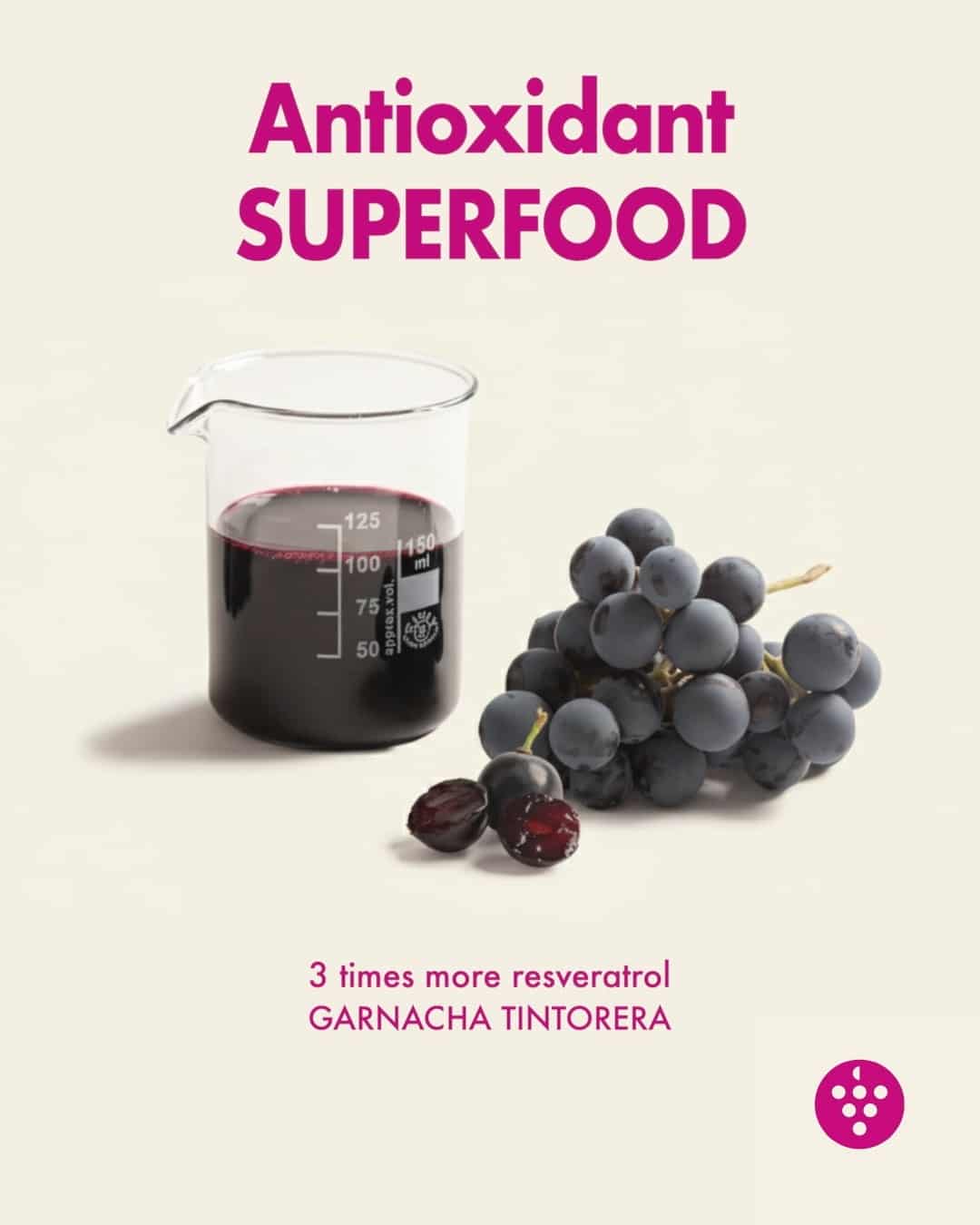
| Property or attribute of concentrated grape juice | Functional benefit and/or technical or commercial use |
| 100% natural, with no additives. | The juice is an authentic ingredient aligned with trends toward natural, sustainable, and transparent formulations. |
| Natural sugars: fructose and glucose (no sucrose). | Provides energy. Serves as a natural alternative sweetener. Improves the nutritional profile by reducing the use of refined sugars. |
| Vitamin C, malic acid, and resveratrol. | Prevention of skin cell degradation. Used in cosmetics or functional beverages made with the Garnacha Tintorera variety, a true superfood. |
| Phenolic compounds. Rich in antioxidants such as resveratrol, anthocyanins, and flavonols. | Reduction of oxidative stress (prevention of cancer cell formation and slowing of aging). Protection against cardiovascular diseases. Regulation of the intestinal microbiota, since polyphenols can act as probiotics. |
| High coloring power of red grape juices, especially the Garnacha Tintorera variety. | Provides natural coloring and enhances the sensory appeal of the final food product. |
| Natural aromatic compounds. | Provides fruity aromas with fresh notes, creating more appealing formulations for consumers. |
| Technofunctional behavior. | Moisture retention and texture improvement in bakery products, thanks to natural sugars. This reduces the use of sorbitol and other additives. Helps preserve food products. |
| Traceability and quality certification. | Provides food safety, transparency, and trust. |
| Sustainable origin and commitment to local producers. | Adds value in markets where sustainability and the circular economy are prioritized. |
Applications of concentrated grape juice in different industries
The value of grape juice and the ability of Julián Soler to produce, store, and deliver it reliably throughout the year depend largely on our adaptive strategy to face different market scenarios and to adjust our product both to trends and to customer requirements. The main keys include:
- Varietal selection: Bobal and Tintorera for red juices with high color intensity; Airén for neutral and versatile white juices.
- The technological capacity of our advanced laboratory, which allows us to guarantee quality and offer specific features: low SO2, free SO2, high-color red, sustainable, organic, baby food, low-color white, Brix adjustment, all according to what each industry or client requires.
These factors allow us to offer juice profiles that truly match the specific needs of sectors such as:
Dairy industry
Concentrated grape juice acts as a natural sweetener in dairy desserts, fruit yogurts, and other types of fermented milk. In probiotic foods such as yogurt and kefir, the addition of grape juice also makes it possible to combine the product’s own functional value with the antioxidant benefits of the grape.
Bakery and pastry industry
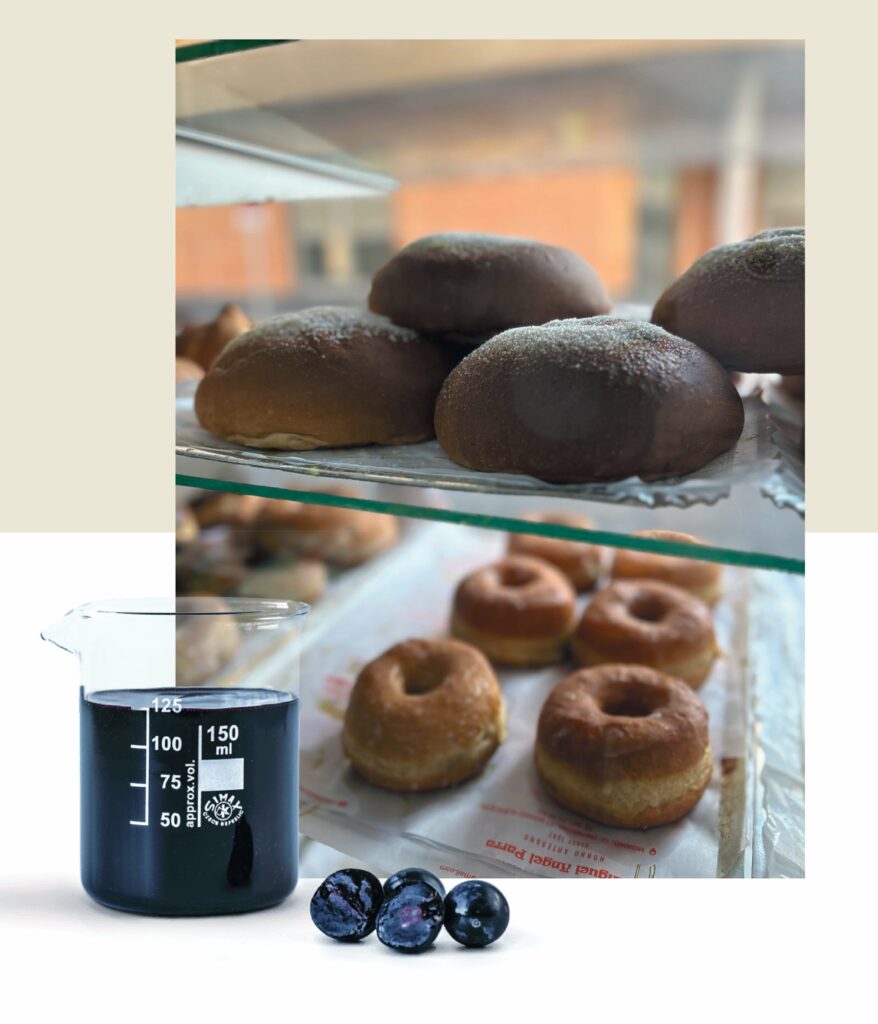
The richness in natural sugars and the coloring power of concentrated grape juice make it an ideal ally for enhancing the visual appeal, moisture, and shelf life of baked goods, cakes, biscuits, cookies, muffins, and various pastry products. In this context, grape juice acts as a natural sweetener, adds nutritional value, and enriches the formulation with antioxidants, helping to create a healthier perception of the final product.
Non-alcoholic beverages
The non-alcoholic beverage market is experiencing unstoppable global growth, offering everything from natural soft drinks, smoothies, and isotonic beverages to alcohol-free drinks with high sensory value and complex textures that reinterpret traditional alcoholic beverages. In all of these products, grape juice contributes body, balance between acidity and sweetness, color, vitamins, minerals, natural sugars, and fruity aromatic notes. Its incorporation can:
- Facilitate the classification of the final product as healthy and functional.
- Improve the sensory characteristics of the final product, ensuring an appealing, sophisticated, and even premium experience for beverages.
Other industries
Concentrated grape juice is also a useful ingredient in:
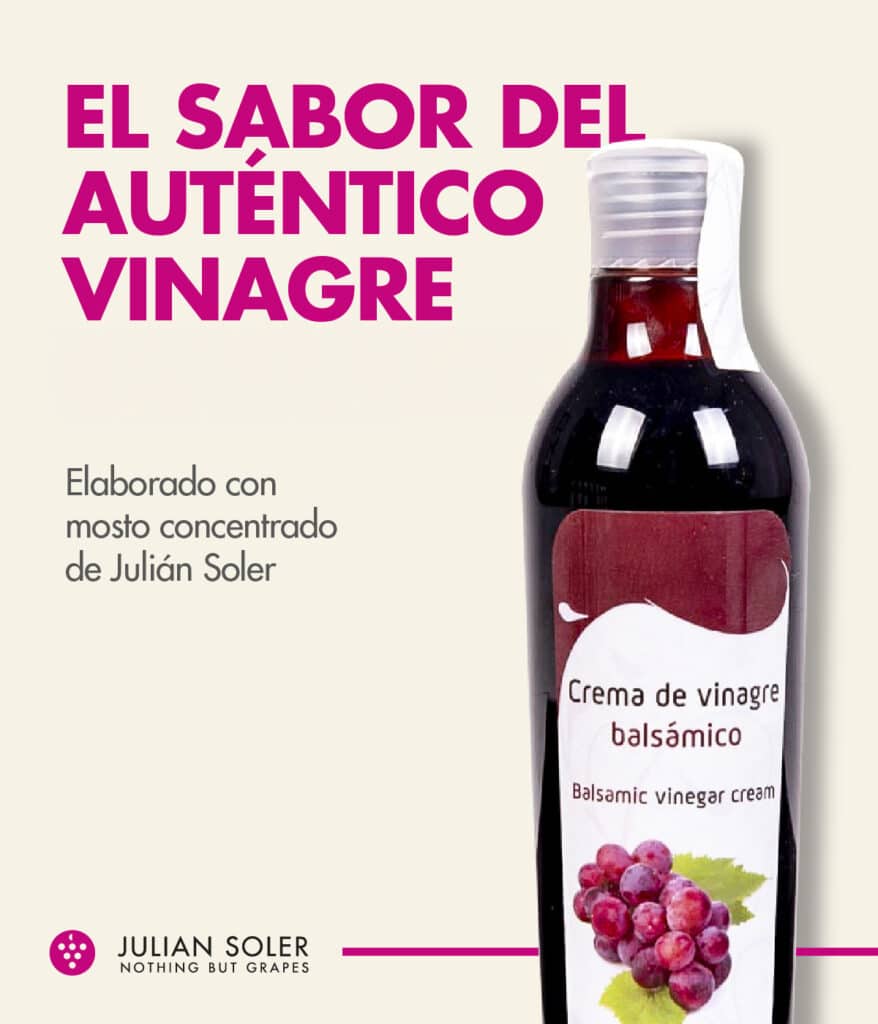
- Jams and canned fruits, as a natural sweetener, flavor balancer, and natural preservative.
- Baby food products.
- Sauces and dressings.
- Vinegars.
- Glazes and fillings.
Use of by-products in different industries
Innovation does not end with the juice. We make use of the entire grape. At Julián Soler, the management of by-products is equally strategic:
- Recovery of grape pomace. This mixture of skins, seeds, and solid residues from the grape is a valuable source of fiber, seed oils, and polyphenols that are used in the food and nutraceutical industries.
- Recovery of tartaric acid for food and winemaking applications.
Concentrated grape juice in new industrial developments
The evolution of the food industry does not stop, and grape juice continues to adapt to that transformation. These three lines of development are clear examples.
Functional syrups
Functional syrups made from grape juice are formulations with different concentrations of grape syrup designed to replace added sugar in various beverages and desserts. For example, they are ideal for functional formulations and energy drinks, where natural sweetness and a balanced mineral profile are sought, without additives.
Nutraceuticals
Concentrated grape juice has a complex phytochemistry. It is an important natural source of bioactive and antioxidant compounds, mainly flavonoids and resveratrol. For this reason, it is used in the formulation of nutraceutical products aimed at cardiovascular health, cellular protection, and healthy aging, such as dietary supplements and resveratrol-based products.
Harvest beverages
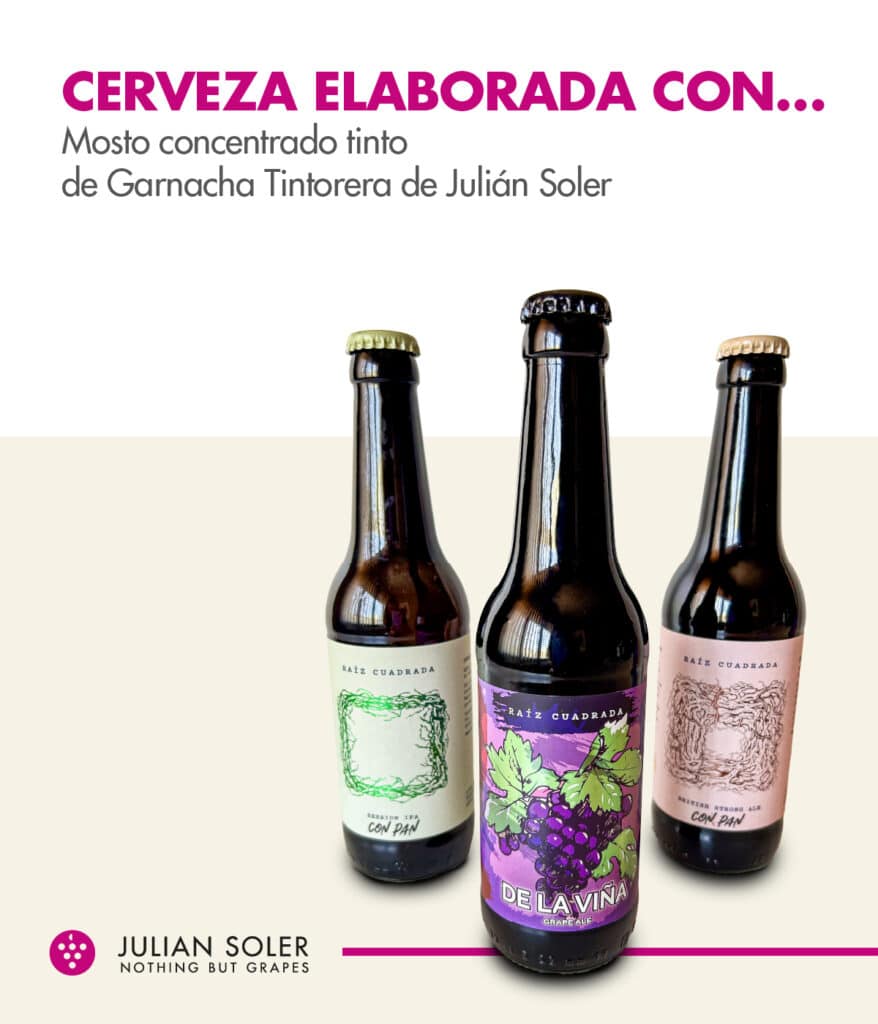
One of the current trends is the incorporation of grape juice into craft beverages such as grape ales. These beers combine, in their production process, the best of two traditions: beer yeast and grape juice. In this case, concentrated juice is not just a functional ingredient; it is an element that adds complexity, freshness, character, and the distinctive notes of each grape variety. Grape ales and other harvest-inspired soft drinks are emerging products that connect consumers with the origin and authenticity of the grape.
Julián Soler grape juice: a shared evolution
With every harvest we see an opportunity to innovate without losing our essence. At JULIÁN SOLER, evolution also means adapting to the market while keeping tradition intact. For this reason, our concentrated grape juices represent more than a clean label and functional ingredient; they are the result of a value chain in which farmers, technicians, and industry work together toward a shared purpose: to keep transforming the grape into the future.
We are your global grape solution supplier. Request more information. We deliver our white and red concentrated grape juice anywhere in the world.
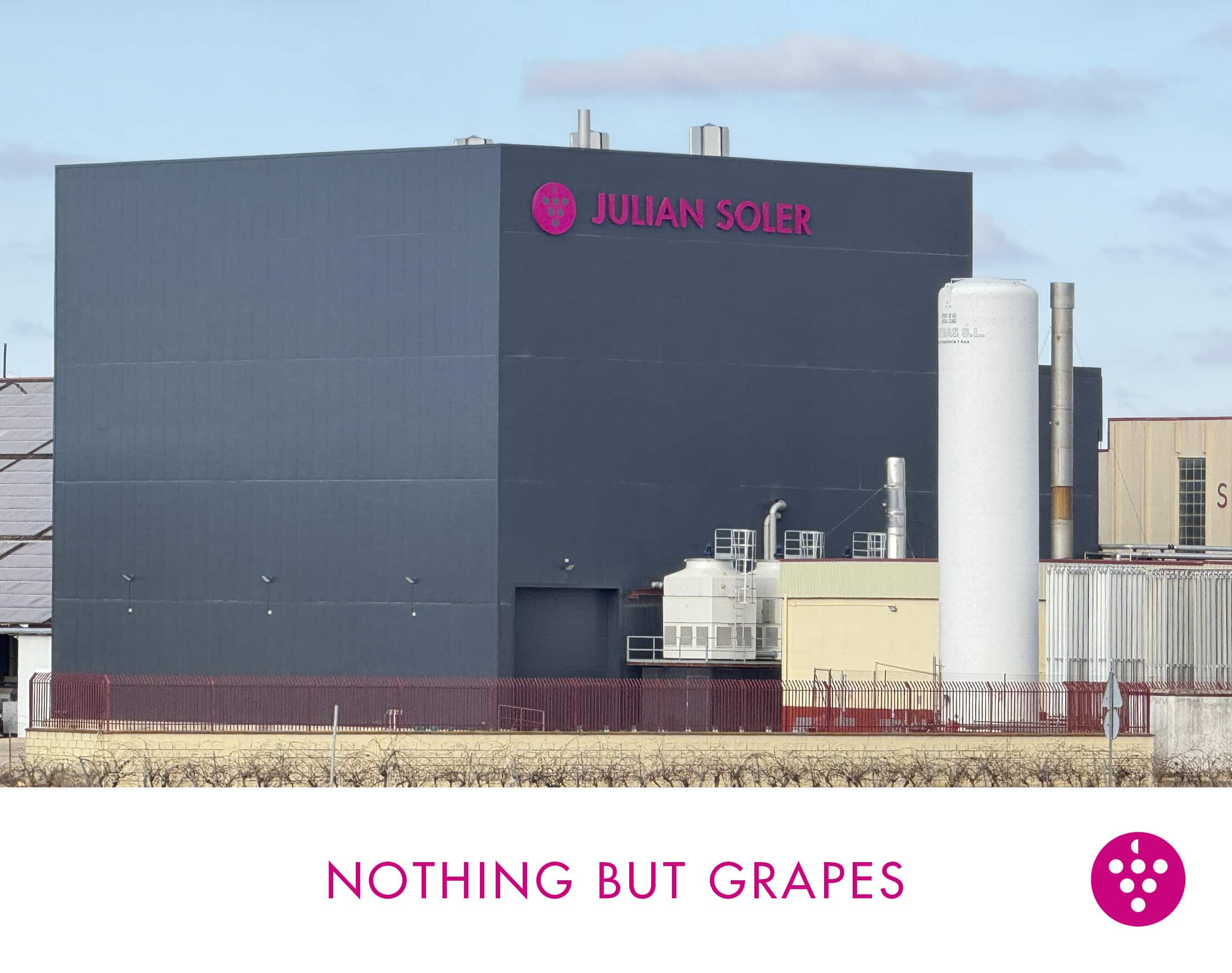


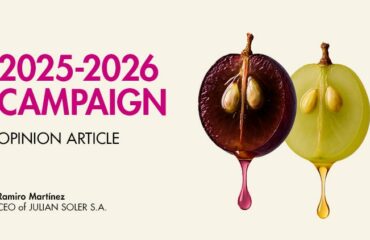
 by
by